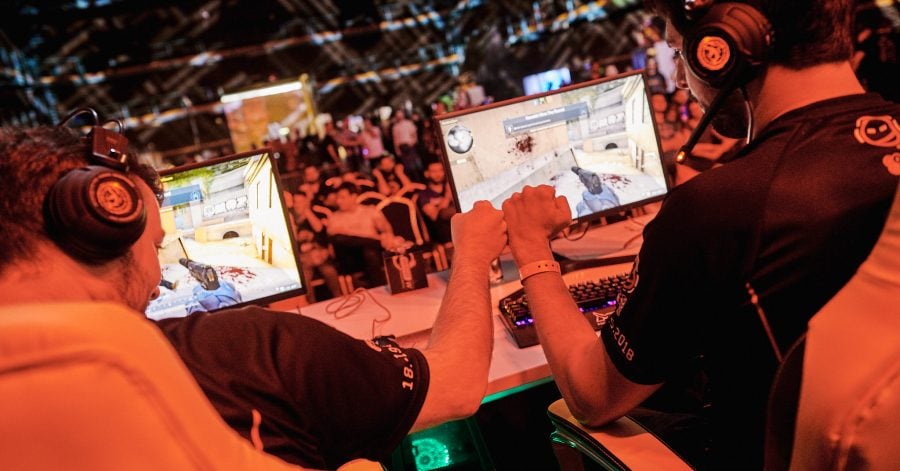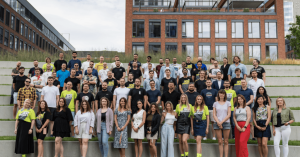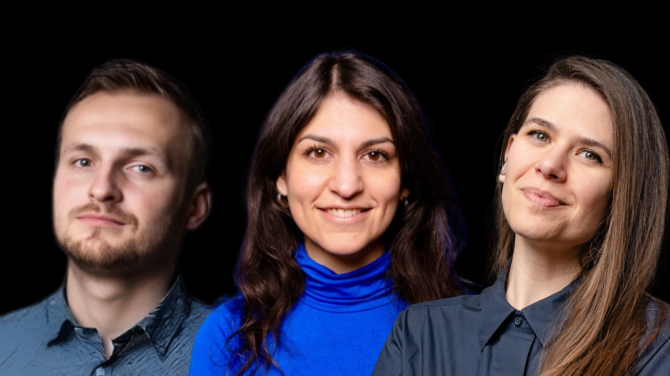When account strategist Nikola Stolnik was working for Google in Dublin, he used most of his free time to play Counter Strike or Dota with colleagues from other tech companies. Usually what happened next was that these friendly competitions ended as matches between Google and Facebook, or other tech companies, Stolnik explains.
Upon his return to his native Croatia, the notion gave him another idea – for organizing B2B e-sports events that would include top tech companies from the region.
“The goal was to invite all of the top tech companies of the region to battle it out in CS:GO for a day or two. We would set up live streams, casters, stages – everything to mimic a proper e-sports experience. This would catch on across the region while I was doing this in my free time – being a full time Marketing Director for Nanobit,” Stolnik tells The Recursive.
Hence, the idea for establishing Good Game as a e-sports startup and an agency was born. And for Stolnik the project started very ambitiously, until the COVID-19 pandemic hit.
“Our goal was to create a UFC brand for corporate e-sports – to have a Good Game event in every tech capital in the world. We’ve steadily grown until COVID hit, which pretty much stopped us in our tracks. However, this is also when we’ve managed to secure a €300K pre-seed round which allowed us to keep afloat while we scramble to survive,” Goog Games’ CEO and founder Stolnik says.
The initial funding allowed Good Game to create e-sports content, ebooks, podcasts, and infographics, while also growing its team to 14 e-sports professionals. This then helped them get on the map for some pretty big players which in turn enabled the company to produce online competitions for clients.
“We’ve since launched our merchandise brand “Good Game” Shop and are working on internal e-sports technology for which we’ll be starting a seed financing round in Q3. Our goal is to raise between €2M and €5M in order to scale our internal development team,” Stolnik explains.
Nurturing the gaming community in Croatia and the Adriatics
Most of the success that “Good Game” has enjoyed so far wouldn’t be possible without the involvement of the gaming community, Stolnik points out.
“Creating an active, positive, sympathetic and mature gaming community has helped us immensely. Our community was the number one priority since our inception (the second priority are the clients),” he says.
For him, the benefits are mutual. “Our community enriches Good Game with instant feedback on our content, initiatives, projects, and so on. They are our ambassadors and as much part of Good Game as my colleagues and myself,” Stolnik tells The Recursive.
Gaming communities allow for great ideas and initiatives to spread like wildfire, and without this community there would be no players, fans and no clients, he adds.
When it comes to the gaming community in the Adriatic region, there is a surprising number of game devs, active players, e-sports competitors, tournament organizers and e-sports teams for such an uninteresting region, the Croatian adds.
“I say uninteresting because there were almost non existent efforts to localize gaming products for the Adriatics markets. I would say that the further south you go in the Adriatics, you’ll find more and more active gamers. Looking from an esports perspective I would say that Serbia, North Macedonia and Albania are forerunners for the industry. We still have a lot of work to do in Croatia in order to raise to their level in terms of e-sports opportunities for fans and competitors alike,” Stolnik points out.
The return of in-person gaming events
While the pandemic severely limited in-person gaming events before, now it is all coming back, and this is extremely exciting for the community.
“There is nothing quite like in-person events when you’re into e-sports. Twitch streams are a nice substitute, but you can’t compare the energy, crowd, meeting people and sharing a passion live to a broadcasted event. I would even compare that there is more emotional impact for a fan attending a small-mid live event than watching a mega event broadcasted live,” Stolnik explains.
The live events that Good Game has hosted have sometimes seen around 2,000 attendees across two days of play. For the company, having the community come together over a shared passion creates new networking opportunities and friendships.
“Most of us forget, with time, that real people exist on the other side of the computer while playing online. Offline events enrich real life relationships and we are happy to be the mediators,” Stolnik concludes.








